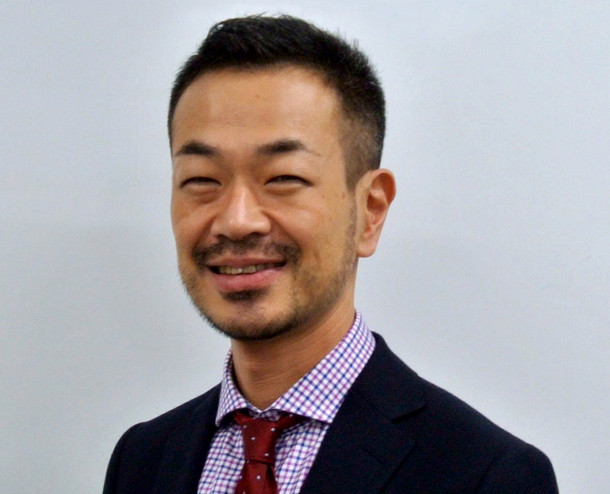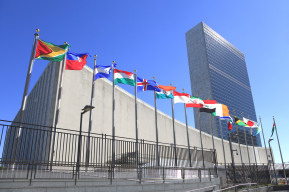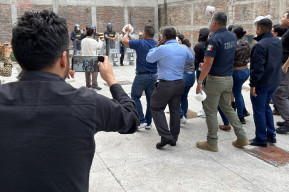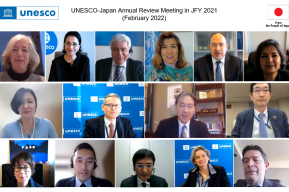News
Politicians use ‘fake news’ to dodge critical journalism

Yasuomi Sawa is one of the four new jury members of the distinguished UNESCO/Guillermo Cano Prize, the only prize dedicated to the work of journalists within the UN system. The jury will review nominations and decide on this year’s laureate to be announced around World Press Freedom Day on 3 May.
Sawa is a Professor at the Department of Journalism of Senshu University. He teaches journalism practice and principles after his thirty-year journalistic carrier at Kyodo News, Japan’s leading news agency.
When asked why he decided to get involved in investigative journalism, he replied that as a university student, he was “struck by in-depth stories of Japan’s dark side: abusive schoolteachers, female factory workers’ inhumane working conditions, or wrongful conviction by undue criminal justice”. His recent work includes stories of sex exploitation of teenage girls, a revelation of the failure to track school enrolment of more than 10,000 immigrant children and extreme crowding in public shelters for abused children. Sawa also revealed massive disposal of court records of Japan’s landmark civil cases by courts across the country. He added that newspaper stories revealing politicians’ corruption enlightened him about what journalism should be like, that is how he “became interested in uncovering the disturbing truth”.
Sawa covered the United Nations as Kyodo correspondent and was an Executive Board member of United Nations Correspondents Association (UNCA). He participated in ICIJ’s Panama Papers and Paradise Papers investigations. The Professor states that “in the context of democracy, factful and verified stories provided by independent sources about what is going wrong with our society” are more important than “exciting political theories that affirms what you have already believed and articles which stokes your anger against those you disagree”.
Sawa is also a founder and Executive Director of J-Forum, or Journalism Practitioners’ Forum of Japan, which has been organising training workshops and conferences for better skills and solidarity building of journalists in Japan since 2010. Sawa researched British journalism at the Reuters Institute of Study of Journalism at Oxford University. He is the author of ‘Global Journalism: Backstories of cross-border investigative reporting’, 'Humanising the News: British Way of Crime Coverage'.
When asked about the main challenges for journalism today, Sawa raises three points: scepticism, legal threat, and cyber harassment. He states that “in the age of digital technology, people are flooded with wider variety of information through social media. Some information widens our perspectives and dissiminates unknown facts, while other kind of information may deride serious journalism insisting that the unfiltered truth is told on social media, rather than ‘biased journalism or news media controlled by elites’. This denigrates painstaking verification efforts and struggle for fair independence of journalism and can be easily exploited by powerful people eager to degrade watchdogs.
One significant phenomenon is the term ‘fake news’ often used by politicians to dodge critical journalism. Such public mistrust may be utilised in another way: legal action in the name of libel, privacy breach, state secret breach, social disorder or espionage against journalists.
Judicial fight needs resources like money, time, peoples’ help, and personal energy, and it may isolate critical journalists as non-compliant, marginal, and even dangerous individuals. Lastly, while it is no doubt that the worst form of silencing journalists is physical attack, cyber harassment is of no less concern: there are reports of journalists, especially women, suffering from online abuses and have considered avoiding certain kind of stories or even quitting their jobs”.
The Jury is composed of six media professionals from around the world, recognized for their leading investigative work and defence for freedom of expression. Awarded annually, on the occasion of World Press Freedom Day (3 May) which will this year take place in Punta del Este, Uruguay, from 2 to 5 May 2022, the Prize is marked by a ceremony and the winner is presented with the sum of US$ 25,000.
This Prize was established by UNESCO’s Executive Board, in 1997, in honour of Guillermo Cano, a Colombian journalist who died in the exercise of his profession. Its purpose is to reward each year a person, organization or institution that has made a notable contribution to the defence and/or promotion of press freedom anywhere in the world, especially if risks have been involved.
Call for Prize nominations
Nominations, submitted by UNESCO Member States and international and regional NGOs active in the field of press freedom, should be submitted by filling out the form in English or French and sent, before 15 February 2022, to the UNESCO Secretariat (g.godoi@unesco.org and f.romer@unesco.org).
More information on the Prize is available here.





